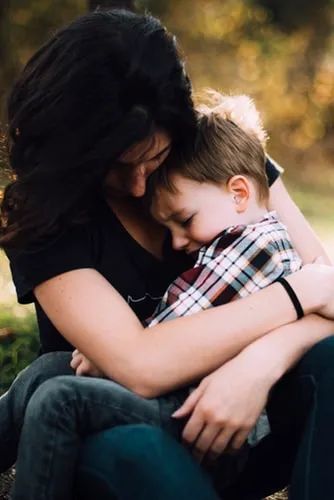Toddler Tantrums
august 14, 2019 | by anna rogers
Here’s an easy topic to tackle! The solution is simple, one-size-fits-all, and guaranteed to work every time…
Except on every day that ends in “Y” and for every parent who has a toddler.
There’s no denying that toddler tantrums are one of the biggest challenges of parenting those precious little munchkins who are somewhere in between baby and big kid, just trying to make their way in the world.
Research and science assure us that tantrums are not the result of our genetic miniatures strategically manipulating adults to get what they want. In fact, tantrums are a normal part of a child’s development, a necessary step in forming emotional intelligence and fortitude.
I’ve read a lot of articles lately that really hammer that truth home. “Tantrums are normal and as parents we should respond calmly and positively.” I have to say, I agree. When our kids are losing their cool, it’s our job to maintain ours and help them navigate through their emotional turmoil. But it seems that these articles I’m reading are stopping short and not exploring the very important task of shaping, molding, growing, and yes, disciplining our toddlers.
At the park, in the store, at a family gathering – our parental response to tantrums is being watched by those around us and it’s shaping our kids. This response is building (or degrading) trust and it is formative beyond the toddler years.

The weightiness of this leaves me wondering – is it really enough to just reassure my child and try to get her back to calm as quickly as possible? Maybe instead of viewing tantrums as a torturous moment we must suffer through as parents, each tantrum should be viewed as a time for teaching, a discussion on how to control emotions and navigate life, and most importantly, a moment of grace.
Tantrums are indeed a sign of our child struggling to emotionally deal with life. As parents, we are survival guides for our kids, equipping them with the knowledge, tools, and support that they need to morph into joyful, functioning adults. The tantrum is prime equipping time.
When it comes to toddler tantrums, I’ve adopted this mantra: It’s normal for my child to be behaving this way, BUT how can I help him or her cope through this moment and form a different response the next time he or she faces a similar situation?
Coping
In our family, we’ve adapted some coping tactics to use during emotional outbursts and tantrums.
Remove. We seek to remove our child from the situation, especially if it’s a public, crowded place, and move into a more peaceful, quiet environment (if possible). Don’t drag or pull. Pick the child up firmly but lovingly if they are unable to walk on their own.
Breathe. Reasoning with the child in the initial moment is ineffective. He or she must calm down before any discussion can be had. We sit and look directly into the child’s eyes and breathe deeply and slowly – in through the nose, out through the mouth – encouraging the child to do the same.
Touch. A reassuring hug or touch goes a long way to build trust in this moment. We let our child know that even though they just totally lost it, they are still safe and so loved. This also helps progress their attitude from exasperated to calm.
Shaping
Once our child is calm, we don’t just re-engage the previous environment where the tantrum began. We use this time following the incident to talk about what happened, help the child think through it, and provide direction and guidance for how to handle a similar situation in the future.
What happened? We let our child explain what happened from their perspective. Children are very insightful and able to understand that things really went south. Allowing them to articulate it helps them see that their response wasn’t healthy.
How could you have handled it differently? Discuss a game plan together. We give ideas or specific direction on how our child could or should handle something like this in the future.
Explain the consequences and connect the cause & effect. Just because a behavior is normal, doesn’t mean that it is acceptable. If our child pitches a fit about not getting the color popsicle that she wanted because Susie got it, she will lose her privilege to have the popsicle. If our child pitches a fit that it’s time to leave the park, we don’t respond by telling her we’ll stay 10 more minutes. Rewarding tantrum behavior may be a great way to stop it in the moment, but it is sending the absolute wrong message to our kids. Show your toddler that there is a connection between tantrum behavior and losing privileges or receiving consequences.
Forgiveness (and sometimes, apologies). We always want to mend fences after a rough tantrum. If our child’s behavior hurt someone else, we require that he or she address that person. We also address forgiveness with our child and reassure our love and our desire to see them navigate their world with more joy and less misery.





